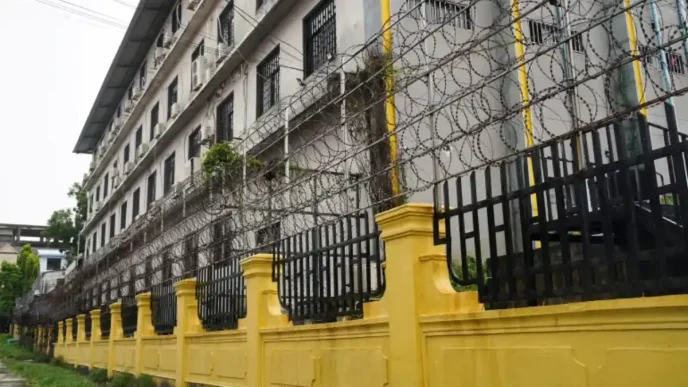In a landmark decision, the Politburo of the Communist Party of Vietnam (CPV) has announced the waiver of all school fees for students from kindergarten to high school in the nation’s public school system. This sweeping policy, unveiled in early March 2025, marks a significant stride towards educational equity, aiming to ensure that every child, regardless of socio-economic background, can access quality education. Praised by international bodies such as UNICEF, the move aligns with Vietnam’s commitments to global frameworks like the Convention on the Rights of the Child and Sustainable Development Goal 4 (SDG 4), which advocates for inclusive and equitable education.
The policy arrives at a critical juncture in Vietnam’s development trajectory, as the country seeks to transform into a modern, knowledge-based economy. By removing financial barriers to education, the government hopes to foster a more inclusive society and equip future generations with the skills needed to drive national progress. However, while the initiative has been widely welcomed, experts and advocates caution that its success hinges on addressing persistent challenges, including resource allocation, infrastructure gaps, and hidden costs that continue to burden vulnerable families.
A Vision for Inclusion
Silvia Danailov, UNICEF Representative to Vietnam, described the fee waiver as “a crucial investment in Vietnam’s future.” In her statement, she highlighted how the policy could enable more children to complete their education, particularly those from disadvantaged backgrounds. Vietnam, with its diverse population of over 100 million, includes significant ethnic minority communities and rural populations who often face economic hardships. For these groups, school fees—however modest—have historically posed a barrier to consistent attendance and academic achievement.
The northern mountainous province of Lạng Son, home to schools like Le Quy Don Primary & Secondary High School, exemplifies the kind of region that could benefit most from this reform. Here, families often struggle with the costs of education, compounded by expenses for textbooks, uniforms, and transport. The fee waiver promises to alleviate some of this financial strain, potentially reducing dropout rates and improving long-term educational outcomes.
Yet, as Danailov pointed out, waiving tuition is only the first step. Ensuring the policy’s effectiveness requires a broader commitment to quality education. This includes providing sufficient resources, expertise, and infrastructure to schools across the country, particularly in remote and underserved areas. Without such measures, the risk remains that the policy could become a symbolic gesture rather than a transformative change.
Challenges Beyond Tuition
While the elimination of school fees addresses a major obstacle, it does not cover the full spectrum of costs associated with education. Families, especially those in low-income brackets, still face significant expenses for essentials like textbooks, uniforms, and transportation. In rural areas, where schools may be located far from home, transport costs can be particularly prohibitive. For children with disabilities or those from ethnic minority groups, additional barriers—such as the lack of accessible facilities or culturally relevant teaching materials—further complicate access to education.
Danailov urged the Vietnamese government to consider these hidden costs when implementing the policy, advocating for targeted support to ensure that no child is left behind. She also emphasized the importance of equity and inclusion, suggesting that special attention be given to marginalized groups. This could involve tailored programs to support children with disabilities or initiatives to provide learning materials in ethnic minority languages, fostering an environment where all students can thrive.
Another pressing concern is the capacity of Vietnam’s public education system to accommodate an anticipated increase in enrollment. With fees no longer a barrier, more families are likely to send their children to school, placing additional strain on already overstretched resources. Expanding access to high school education, in particular, will require significant investment in infrastructure, including the construction of new public schools and the development of satellite primary schools in remote communities.
A Call for Quality and Innovation
Beyond access, the quality of education remains a critical issue. Vietnam has made remarkable progress in recent decades, with literacy rates soaring and primary school enrollment nearing universal levels. However, disparities in educational quality persist, particularly between urban and rural areas. Teachers in remote regions often lack adequate training, and schools may be under-equipped, lacking modern learning materials or digital tools.
To address these gaps, UNICEF has pledged to support Vietnam in enhancing teacher training and promoting digital learning opportunities. Danailov highlighted the potential of advanced technologies, such as artificial intelligence, to assist educators in delivering personalized and effective instruction. She also advocated for investments in “green school models” to address the challenges posed by climate change, ensuring that educational facilities are sustainable and resilient to environmental risks.
Community-based education initiatives could also play a vital role in expanding access and improving quality. By establishing satellite schools and local learning hubs, the government can bring education closer to children in isolated areas, reducing the need for long and costly commutes. Such efforts, if paired with robust teacher training and resource allocation, could help bridge the urban-rural divide and ensure that the benefits of the fee waiver are felt nationwide.
Broader Implications for Vietnam’s Future
The school fee waiver policy is more than a social reform; it is a strategic investment in Vietnam’s long-term development. Education is widely recognized as a key driver of economic growth, social mobility, and national stability. By ensuring that all children have access to schooling, Vietnam is laying the foundation for a more skilled and competitive workforce, capable of meeting the demands of a rapidly evolving global economy.
This policy also reflects the CPV’s broader commitment to social equity, a cornerstone of its political ideology. Vietnam’s rapid economic growth over the past few decades has lifted millions out of poverty, but it has also widened inequality, particularly between urban and rural areas. Educational reforms like the fee waiver signal the government’s intent to address these disparities, fostering a sense of inclusion and shared prosperity.
However, the success of this initiative will depend on sustained political will and financial commitment. Education budgets must be prioritized, even in the face of competing demands, to ensure that schools have the resources they need to deliver quality instruction. Moreover, close collaboration with international partners like UNICEF can provide valuable expertise and support, helping Vietnam navigate the complex challenges of implementing large-scale educational reform.
A Step Forward, With Work Ahead
Vietnam’s decision to waive school fees for public education is a bold and commendable step towards achieving educational equity. It sends a powerful message about the value of education and the government’s commitment to ensuring that no child is denied learning opportunities due to financial constraints. For families in provinces like Lạng Son, this policy offers hope of a brighter future, where children can pursue their dreams without the burden of school fees.
Yet, as Silvia Danailov and other advocates have noted, the journey towards truly inclusive education is far from over. Addressing hidden costs, improving infrastructure, and ensuring quality teaching are essential to realizing the full potential of this reform. If Vietnam can meet these challenges, it stands to gain not only a more educated population but also a stronger, more equitable society.
As the country moves forward with this ambitious policy, the eyes of the international community will be watching. Success in Vietnam could serve as a model for other nations grappling with similar issues, demonstrating that access to education is not just a right but a powerful tool for national transformation. For now, the fee waiver is a promising start—but its true impact will be measured in the years to come, as Vietnam works to turn this vision into reality.














